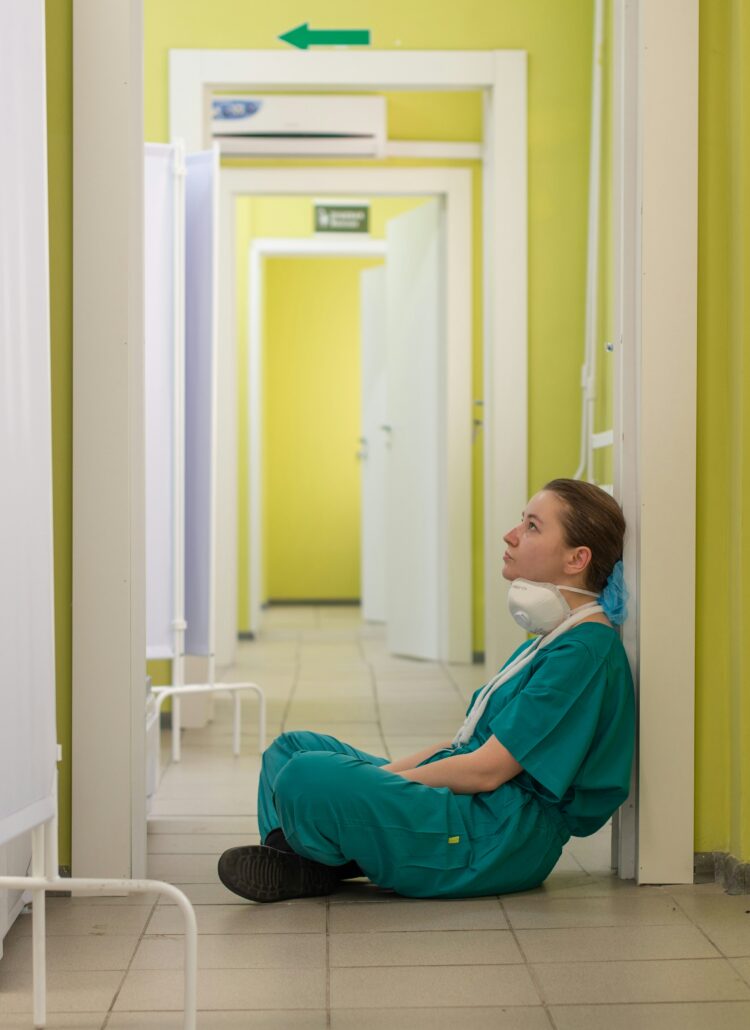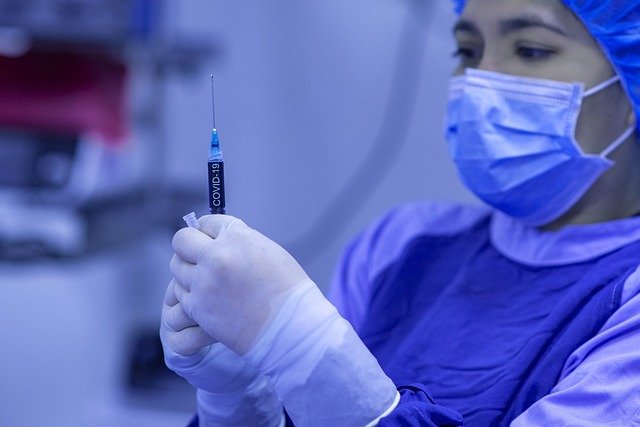There's a lot of talk about MICU vs SICU lately, and it's understandable why. After all, as a nurse, how can you choose the suitable unit for you?
We'll tell you: You can choose based on your preference and interest.
There are some factors to consider when making this decision. For example, do you like to work in a fast-paced environment where you would assist surgeons in surgeries?
If so, then an SICU may be the better option—but if you only work in a hospital setting where you will monitor and take care of critically ill patients, then a MICU might be the way to go.
This article is full of information on both units and what they do! We've spent our time researching the differences between these two units so that we can help nurses make informed decisions about where they should work and start their careers.
Part 1: Areas of the ICU

Before we get into defining MICU and SICU, let's first discuss different areas of the ICU.
The Intensive Care Unit (ICU) is one of the most important parts of a hospital. It's where patients who are critically ill or injured are treated.
The ICU is a busy environment, with multiple patients being cared for at any given time. The staff often work long hours to ensure that everyone gets the best possible care.
Here are the different areas of the ICU:
1. NICU

The Neonatal Intensive Care Unit (NICU) is an intensive care unit designed for newborns. Newborns are fragile and need close monitoring and care to ensure they can survive and thrive.
The NICU provides a safe environment where newborns can be cared for by staff who have specialized training in neonatal care.
What types of health issues are managed in a neonatal intensive care unit?
When your baby is born prematurely, they have an increased risk for health problems such as respiratory distress syndrome (RDS), which causes difficulty breathing; infection, bleeding; jaundice; feeding problems; and failure to grow properly.
Premature babies also have an increased risk of developing chronic lung disease (COPD). In addition, babies who weigh less than 3 pounds at birth often have difficulty staying warm without extra help from machines that supply oxygen and heat.
2. MICU

The MICU is a critical care area that provides intensive monitoring and treatment for patients with severe and life-threatening conditions.
What types of health issues are managed in a medical intensive care unit?
Some examples of conditions treated in a MICU patients include:
Heart attacks and other cardiovascular problems
Sepsis (infection in the blood)
Severe burns
Trauma from a car accident or severe fall
Difficult childbirth.
3. SICU

The surgical care unit is also known as the SICU. The SICU is a specialized area within a hospital that provides care for patients who need surgery.
What types of health issues are managed in a surgical care unit?
The primary purpose of the surgical care unit is to provide patients with pre-surgical care and post-sugical management during their stay in the hospital.
Here are some conditions that may require treatment in a surgical care unit:
Open heart surgery
Orthopedic surgery
Invasive heart procedures (e.g., coronary artery bypass grafting)
Brain surgery (e.g., craniotomy)
4. CCU

A coronary care unit (CCU) is a type of intensive care unit (ICU) that specializes in the treatment of patients with heart disease.
What types of health issues are managed in a cardiac care unit?
The two main types of health issues managed in a CCU are:
Heart attack: An acute event caused by a blockage of blood supply to part of your heart muscle.
Cardiac arrhythmias: Irregular heartbeats that may be life-threatening if they continue to occur or worsen over time.
5. PICU

Pediatric care units are designed to care for children who are experiencing a variety of health issues. These units are usually located in hospitals and other medical facilities.
What types of health issues are managed in a pediatric intensive care unit?
The types of health issues managed in a PICU include:
Severe asthma attacks that require oxygen therapy.
Sudden life-threatening allergic reactions (called anaphylaxis) from food allergies or bee stings.
High fevers that last more than 24 hours, especially if there is no apparent cause (called unexplained fever).
Severe infections that affect multiple organ systems (called sepsis).
6. TICU

TICU is also a specialized area of the adult ICU. It is used for patients with severe injuries, such as trauma from car accidents, gunshot wounds, or victims of explosions.
What types of health issues are managed in Trauma ICU?
Common health issues managed in the Trauma ICU include:
Head injuries (e.g., skull fracture)
Spinal cord injury
Chest injuries (e.g., lung contusion) and rib fractures
Abdominal injuries (e.g., ruptured spleen, liver, and pancreas) and splenic rupture
Part 2: What Is MICU And SICU?
What Is the MICU?

The medical intensive care unit (MICU) is designed specifically to provide intensive care for patients who are critically ill or injured. The goal is to stabilize these patients so they can be transferred to another unit or released from the hospital.
Patients in the micu will receive around-the-clock monitoring by skilled medical professionals trained to manage any medical emergencies that may occur during their stay.
The MICU is staffed by specially trained physicians, nurses, and technicians who work together to provide life-saving care for patients with severe illnesses or injuries.
Also Read: ICU vs MICU: What's the Difference?
What Is the SICU?

The SICU (surgical intensive care unit) is a specialized hospital unit where patients who have had surgery receive intensive monitoring and treatment.
The SICU is usually located near the operating room, so that staff can move patients quickly from one to the other if they need emergency care.
In addition to providing post-surgical patients care, the SICU monitors patients who are in critical condition as a result of problems that developed during surgery.
The SICU is equipped with advanced medical equipment, such as ventilators, ECMO (extracorporeal membrane oxygenation), dialysis machines, and radiology equipment like CT scanners and MRIs.
Also Read: SICU vs ICU: What Are Their Key Differences And Similarities?
Part 3: Key Differences Between the MICU and the SICU

The main difference between the two units is that the MICU typically treats critically ill patients while the SICU usually cares for patients who have recently undergone surgery.
MICU treats patients with more severe illnesses than those treated in the SICU. However, both units provide round-the-clock monitoring of vital signs and intravenous drugs to maintain stable blood pressure, oxygen levels, and blood glucose levels.
Another difference between these two units is that they provide different levels of staffing.
For example, while both units employ physicians, nurses, respiratory therapists, and pharmacists, only ICUs typically employ intensivists — doctors who specialize in intensive care medicine — and residents who are training to become intensivists.
Part 4: Key Similarities Between the MICU and the SICU

The MICU and the SICU are similar in many ways. Both units are critical care units, and both have an equivalent level of patient acuity.
Many of the patients on both units have serious illnesses or injuries that require constant monitoring.
Patients in both units are intubated and sedated, which means they cannot speak for themselves or make their own decisions about their care.
The staff members on both units work hard to provide compassionate care for these patients, but it can be challenging.
The main focus of both units is to provide around-the-clock monitoring, support, and treatment for patients with severe medical conditions or injuries.
This includes managing their airways, breathing, and circulation to ensure that they stay alive until their condition improves enough for them to be moved out of intensive care.
Both units also offer specialized life support services such as ECMO (extracorporeal membrane oxygenation), dialysis, and cardiac surgery, among others.Part 5: MICU VS SICU Nurses
What Does A MICU Nurse Do?

MICU nurses work in the Intensive Care Unit (ICU), a hospital unit where patients who are critically ill are admitted for intensive monitoring, treatment, and support.
The MICU nurse is responsible for providing care to patients who may be very sick or injured. They must be comfortable with invasive procedures, such as inserting IVs and administering medications.
The MICU nurse needs to be able to diagnose and treat various conditions, including pulmonary, cardiac, and neurologic problems.
They also need to recognize when patients are getting worse and when they need additional treatments or medications.
MICU nurses have specialized training in critical care nursing, which includes the ability to interpret diagnostic tests like electrocardiograms (EKGs) or chest X-rays.
A bachelor's degree in nursing (BSN) is required for this position, along with the successful completion of several clinical hours under the supervision of an experienced physician or other health professional.
What Does A SICU Nurse Do?

SICU nurses are responsible for the care of critically ill patients in a surgical intensive care unit (SICU).
Their duties include monitoring patient conditions, administering medications, and assisting with surgical procedures.
If you're interested in working as an SICU nurse, you should have strong communication skills and experience working with critical patients.
Job Duties:
- Monitoring patients' conditions
- Administering medications
- Assisting with surgical procedures
- Administering blood or blood products as ordered by a physician
- Performing chest tube thoracostomy procedures as ordered by a physician
Part 6: How To Choose the Right Unit for You As A Nurse?

Choosing the right unit for you as a nurse can be difficult. There are so many different types of units out there, and each one has its own unique characteristics.
Moreover, the worst thing is you are never taught this in nursing school.
Many nurses specialize in certain areas, such as pediatrics or surgery.
However, this can limit your career options — especially if you don’t want to be limited to one type of hospital setting.
The best way to choose the right unit for you is by considering what type of work environment will be best suited for your personality type, as well as how much money you’re looking to make in the long run.
Here are some tips on how to find the perfect nursing unit:
1) Consider Your Personality Type
Nurses are often stereotyped as being compassionate and caring.
While this may be true for the majority of nurses, there are also some who lack these qualities and prefer to work alone rather than with patients.
If you are not comfortable working with sick people or don’t have any interest in helping others, then this might not be the right career choice for you.
2) Consider Your Interests And Goals In Nursing
The second step in choosing a nursing unit is to consider your interests and goals in nursing. Do you want to work with children or adults?
Are you interested in helping patients with their mental health, or do you want to focus on their physical well-being?
An excellent way to start thinking about this is by looking at the different types of nursing specialties.
For example, if you are interested in pediatrics, look at hospitals that offer pediatric services. If you are interested in mental health, look for hospitals that provide psychiatric care.
Once you know what specialty interests you, it's time to start looking for the right hospital.
3) Consider Your Level Of Experience
Nurses with more experience will often be given more responsibility than those just starting.
So if you're starting as a nurse, you may want to consider working on a general medical/surgical floor where there is less responsibility than other units such as intensive care units (ICU), emergency rooms, or critical care units (CCU).
4) Consider The Training And Advancement Opportunities Available On Each Unit
When choosing which unit to work on, it's essential to consider the training and advancement opportunities available in each unit.
Some units offer more chances for nurses to learn new skills or advance within their field. Other units may only offer basic training and no opportunities for advancement.
5) Consider The Pay
Conclusion – MICU VS SICU
Now that you've learned all about MICU vs SICU, it's time to decide which one is right for you.
If you're looking for an environment where there's always something new happening, and you'll have a lot of opportunities for advancement, then SICU may be a better fit than MICU.
But if your top priority is working alongside people who are passionate about their jobs and helping patients get the care they need, then MICU may be a better choice.
Whatever your decision, don't forget to take the time to learn more about each unit's unique features and benefits before making up your mind!FAQs
Is MICU The Same As ICU?
MICU and ICUare both intensive care units, but they serve different purposes. MICU is short for medical intensive care unit, and it's a step up from a regular ICU.
It's where patients with severe illnesses or injuries are treated, and it also handles patients who need advanced life support.
ICU stands for internal medicine critical care unit, and it's where patients who have injuries or illnesses that are not as severe as those in a MICU are treated.
Is MICU Or SICU Better?
The answer is that it depends on the patient. Both units are staffed by highly trained, specialized healthcare professionals dedicated to providing patients with high-quality care.
Each unit has its own strengths and weaknesses, and it's essential to understand how each unit works before making a decision about where you'd like your loved one to receive treatment.
What Kind Of Patients Are In The SICU?
The SICU is for surgical patients, both those who are in the process of being operated on and those who are recovering from surgery.






